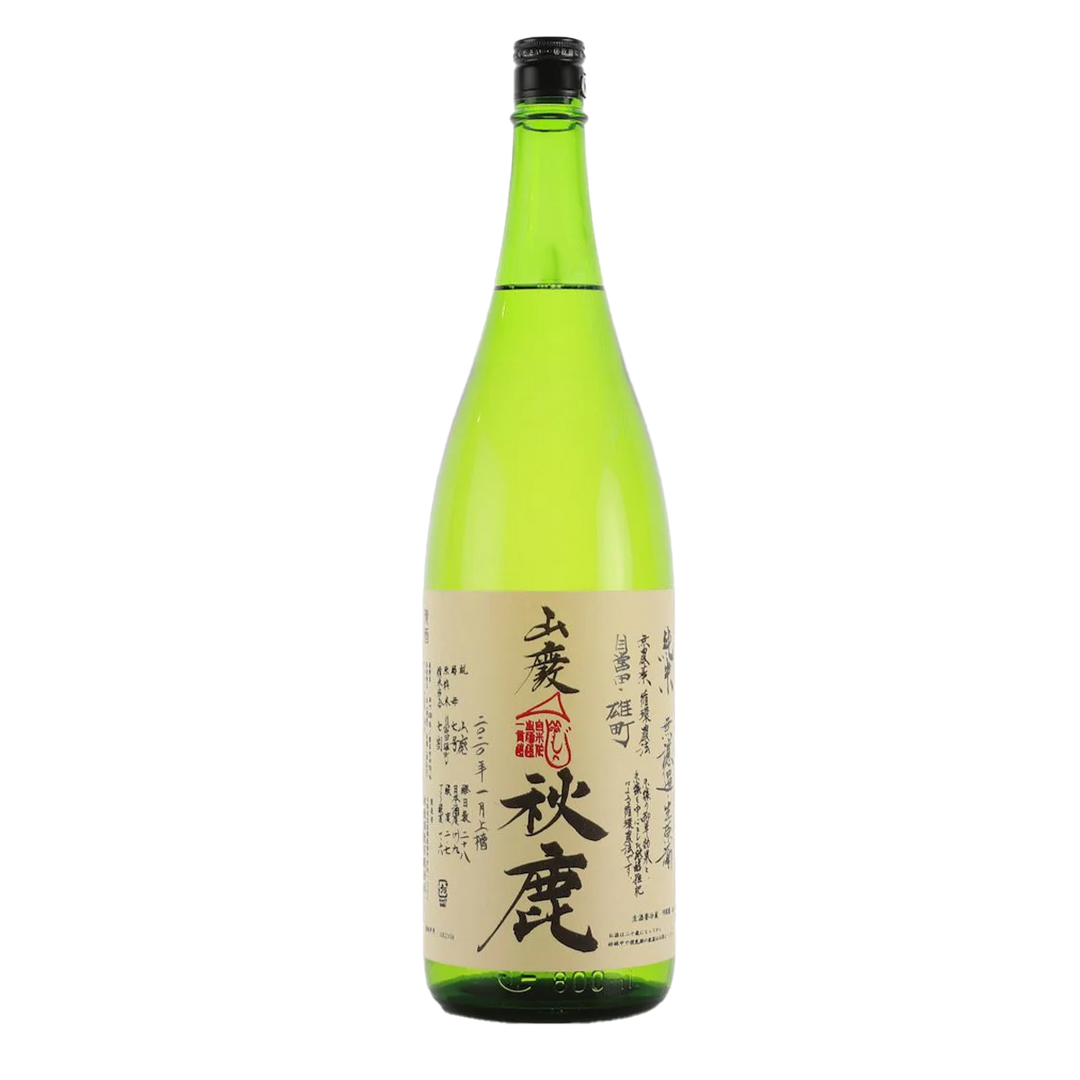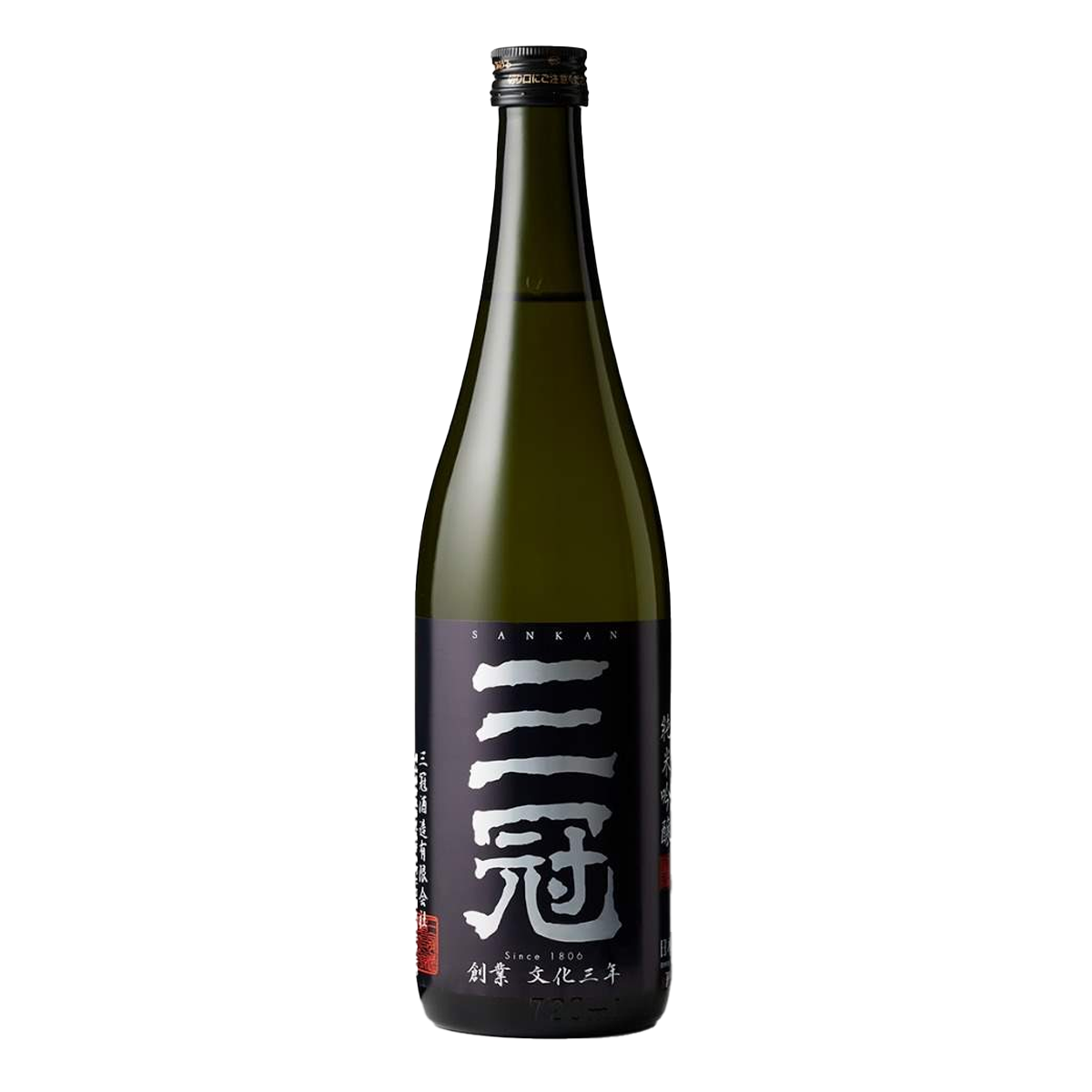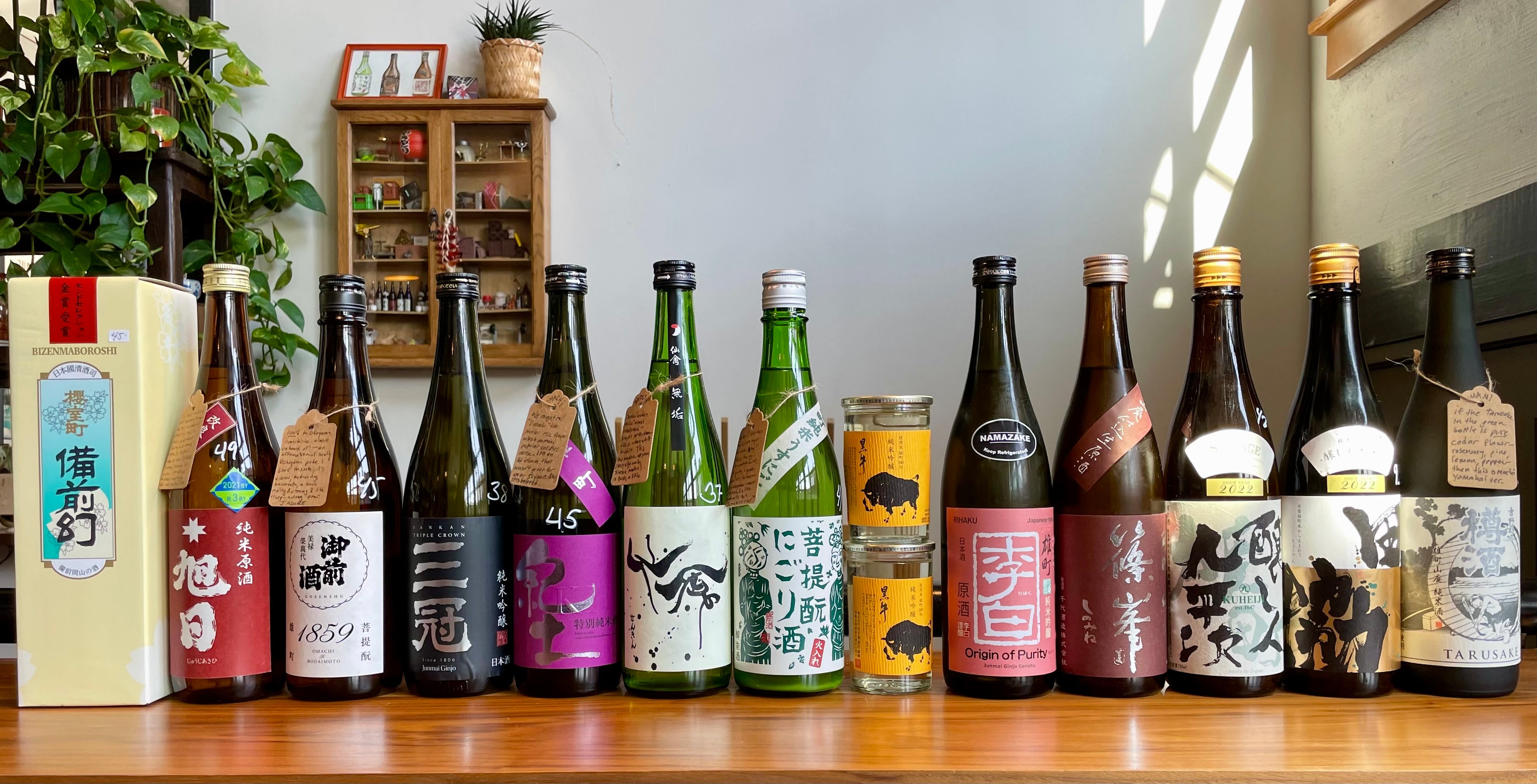
Akishika Junmai Yamahai Namagenshu Omachi
- Low stock - 1 item left
This Omachi brew-- Omachi being the rice variety-- is wildly complex and savory. On the nose: braised cippolini onion, nutmeg and clove, bubbling teriyaki sauce, apple and worcestershire...but on the palate, it takes an intense turn into sticky maple-glazed yams, wood-fired oven roasted carrots, fried Jerusalem artichokes, white miso, soft, long cooked shallots and sagey herbs. It has this beautiful, velvety cocoa powder texture like the dusting on a chocolate truffle.
Brewery: Akishika Shuzo
Location: Nose (inland), Osaka
Grade: Junmai
Rice: Omachi
Yeast: #7
Fermentation starter: Yamahai
Polish: 70%
Recommended temp: medium-warm (115F) to room temperature (68F)
Akishika Shuzo are guided by one central principle: making sake that showcases the rice. The rice's flavor, its intrinsic characteristics, the terroir in which it's grown, and the mastery of the farmer, are key to the sake's identity. In this sense, Akishika's approach closely reflects the domaine mindset of grower-producers in wine.
Akishika Shuzo grows much of their own rice organically and even using some biodynamic practices (a tremendous feat and almost unheard-of in Japan). To coax out the microbial terroir, native lactic acid starters are typically used, dilutiuon and clarification are avoided, they play a lot with aging, single site, and vintage, and also produce an impressive range of products. From the simple, honest and timeless Bambi One Cup, to a top shelf brew. You can think of this as a premier cru for Akishika Shuzo: meticulously crafted from rice grown by the brewery, beautiful and complex, very lightly aged. But there's still a tier above it--let's call that grand cru-- Akishika's 8+ year aged releases, and single paddy sake.
For this mouth-filling yet soft, intensely umami sake with balancing sweetness and unctuous mouthfeel, you need food with equal presence.
Anything nutty, mushroomy, roasted, meaty, curry/heavily spiced, sweet or bitter will pair beautifully. The higher alcohol of this genshu (undiluted) brew means it will generally do better with food that has some richness, and I recommend serving it close to room temp: either lightly chilled, at room temperature or lightly warmed. Too high a heat may make it boozy, too cold can mute the flavors. I'm thinking a roasted chicken dressed with mushroom and shallot jus, roasted root vegetables dressed with a curry cream sauce, mole negro, mushroom or liver pate, cheese plates...



